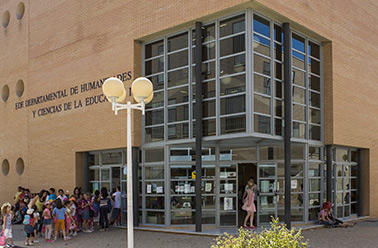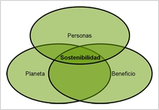Presentación
{{pre.error[0].message}}
Importante:
 El Máster “Desarrollo y Codesarrollo Local Sostenible” pretende cubrir una necesidad de la sociedad, repetidamente solicitada por personas e instituciones, que demanda profesionales con la formación adecuada que puedan impulsar el desarrollo en sus más diversas facetas.
El Máster “Desarrollo y Codesarrollo Local Sostenible” pretende cubrir una necesidad de la sociedad, repetidamente solicitada por personas e instituciones, que demanda profesionales con la formación adecuada que puedan impulsar el desarrollo en sus más diversas facetas.
Esta formación debe combinar múltiples saberes —antropología, economía, derecho, geografía, medioambiente, etc.— que permitan a las personas que terminen el Máster desarrollar su trabajo con profesionalidad y eficacia.
El Máster aborda, desde las perspectivas académica, científica y profesional aspectos de perenne actualidad, que tanto tienen que ver con el desarrollo de los pueblos y de las personas:
- Desarrollo y Codesarrollo local, entendido en sus múltiples aspectos: rural y urbano, interior y litoral… Estudiando los diversos modelos y sus peculiares características (distritos industriales, sistemas productivos locales, planes de desarrollo local…).
- Cooperación al desarrollo y movimientos poblacionales, pues precisamente buena parte de estos movimientos están originados por la pobreza y el reducido nivel de vida de los lugares desde los que se inician, o por las guerras y la inestabilidad social, causas, en la mayor parte de los casos, del subdesarrollo. La cooperación al desarrollo y la formación de personas de otros lugares, que después impulsen el desarrollo socioeconómico en sus países de origen, es trascendental para mejorar el nivel de vida de muchas zonas que ahora son focos de pobreza y de inmigración.
- Sostenibilidad, que comporta planes de desarrollo que hagan un uso racional de los recursos, que respeten el medio ambiente y que no hipotequen el desarrollo de las futuras generaciones. Y que, al mismo tiempo, sean viables desde el punto de vista económico.

Perfil recomendado para estudiante de nuevo ingreso
El carácter interdisciplinar de las temáticas que aborda el master le da una singularidad que abarca innumerables disciplinas del ámbito universitario y laboral. El perfil académico y personal de ingreso recomendado sería, por una parte, titulados universitarios que estén realizando su actividad laboral en empresas o instituciones de desarrollo local y, por otra, egresados de titulaciones de grado de la rama de Ciencias Sociales más vinculadas con el desarrollo local, codesarrollo y la sostenibilidad, como son Economía, Administración y Dirección de Empresas, Turismo, Geografía, Derecho, Relaciones Laborales, Administraciones Públicas, Medio Ambiente, Sociología, así como Ingeniero agrónomo e Ingenieros técnico agrícola.
El estudiante potencial de este master tendría que ser una persona dinámica, comunicativa, emprendedora, responsable y proactiva, con capacidad de gestionar y dinamizar equipos materiales y humanos. Del mismo modo debe de tener capacidad para impartir formación, con conocimientos en gestión empresarial y aprovechamiento de los recursos.
Datos generales
Rama de conocimiento:
{{pre.presentacion[0].nom_rama}}
Duración del programa:
{{pre.presentacion[0].n_creditos}} Créditos / {{pre.presentacion[0].n_duracion}} años
Tipo de enseñanza:
{{pre.otros_datos[0].tip_ensenanza}}
Lengua(s) utilizadas:
Campo de estudio:
{{pre.presentacion[0].nomambito}}
ISCED:
{{pre.presentacion[0].c_campos_estudio}}
{{pre.presentacion[0].c_campo_estudio_2}}
Coordinación
Teléfono: {{coo.coordinador[0].tlfcoo | trim}}
E-mail: {{coo.coordinador[0].emailcoo}}
E-mail: {{c.cen_email}}










 El plan formativo del Máster en Desarrollo y Codesarrollo Local Sostenible dota al titulado de una capacitación adecuada para llevar a cabo el desarrollo de su actividad desde una orientación prominentemente investigadora, sin perjuicio de que los estudiantes puedan completar su currículo con un perfil mas profesional mediante la selección de itinerarios.
El plan formativo del Máster en Desarrollo y Codesarrollo Local Sostenible dota al titulado de una capacitación adecuada para llevar a cabo el desarrollo de su actividad desde una orientación prominentemente investigadora, sin perjuicio de que los estudiantes puedan completar su currículo con un perfil mas profesional mediante la selección de itinerarios.